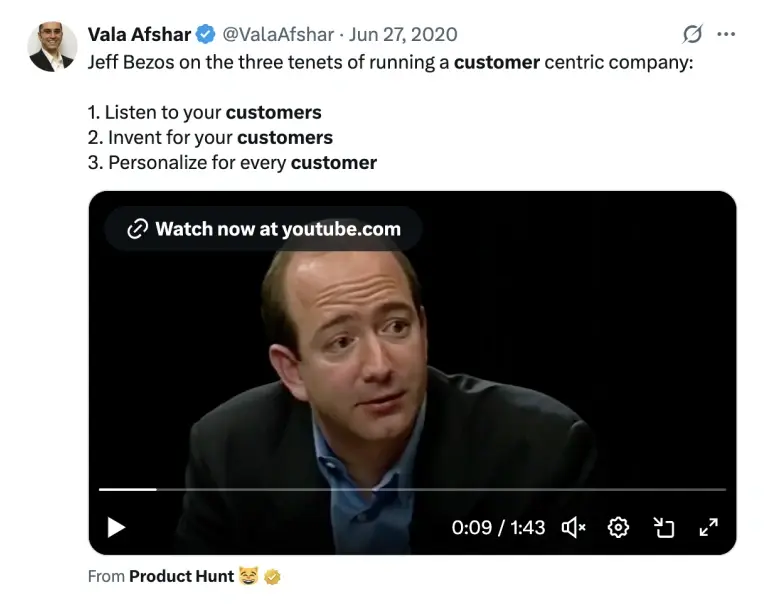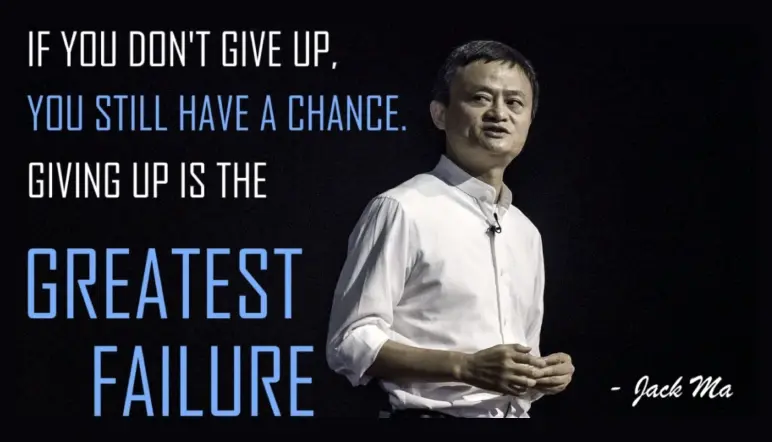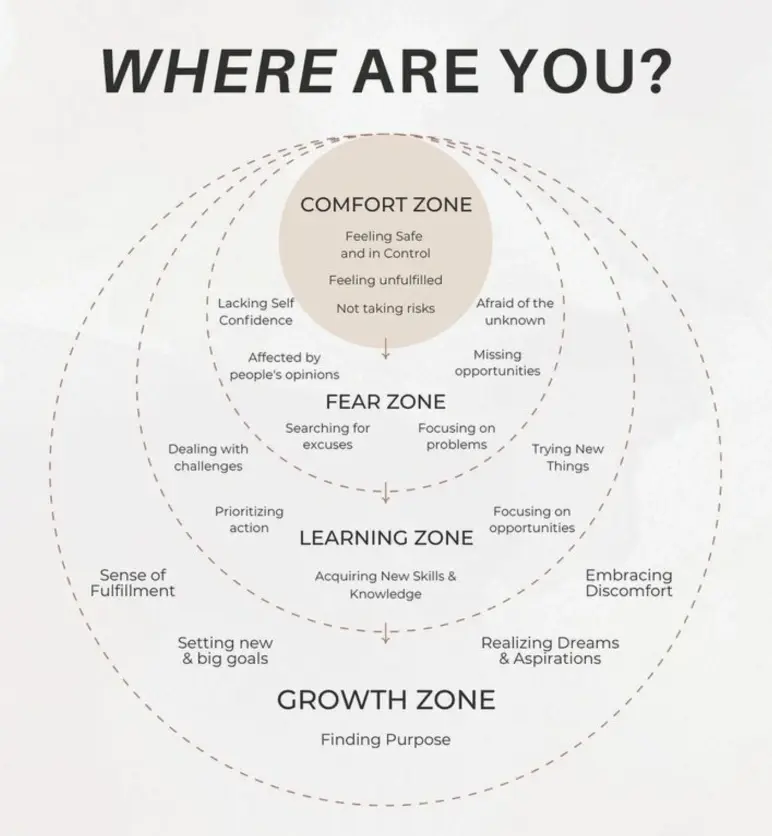“Success is not in what you have, but who you are.”— Bo Bennett
That’s what I’ve seen time and again: Success follows the entrepreneur, not the other way around.
I’ve spent over a decade working with startup founders—inside pitch rooms, strategy sessions, and all-night product scrambles. I’ve seen the habits and mindsets that quietly separate those who scale from those who stall.
Why this post? Too many aspiring entrepreneurs chase tactics, fundraising, marketing, and growth hacks before becoming the kind of leader that success demands. This list is here to bridge that gap
Each trait here is something I’ve personally witnessed in the best founders. If you’re building something of your own, consider this a cheat sheet for how to think, not just act like an entrepreneur.
Let’s dive in.
8 Traits (or characteristics) of successful entrepreneurs
After meeting thousands of entrepreneurs over the years, from ambitious first-timers to seasoned founders, I started noticing patterns. The ones who succeed don’t always have the best pitch or the most funding. But they do share a mindset.
In this section, I’m breaking down eight traits I’ve seen again and again in entrepreneurs who go the distance.
1) Calculated and purposeful
You’ve probably heard the saying “In the race of deer and lion, many times the deer wins because the lion runs for food, while the deer runs for life.” Remember, the purpose is more important than need.
The most successful entrepreneurs I’ve met don’t just chase goals blindly; they move with purpose. Every step they take is thought through, not rushed.
They know what they’re building and why it matters, which helps them stay focused when things get messy.
I’ve worked with founders who’ve turned down tempting partnerships or delayed launches simply because it didn’t align with their long-term vision. That kind of clarity takes discipline. But it’s also what separates those who react from those who lead.
In 1999, just a year after founding Google, Larry Page and Sergey Brin were offered $1 million to sell the company to Excite. They turned it down. Their vision was to organize the world’s information, not just run a search engine for quick profit.
That calculated refusal kept Google independent, and within a few years, it became the most dominant force on the internet.
2) Integrated
One thing I’ve come to respect deeply in entrepreneurs is integrity; that runs all the way through.
The founders who build real, lasting businesses are the ones who stay true to their values, even when it’s inconvenient. They don’t just say the right things; they do the right things. Especially when it’s hard.

I’ve seen this show up in small but powerful ways. A founder chose to delay a launch because the product wasn’t meeting their quality standards. Another one walking away from a fast funding deal because the terms didn’t align with their long-term vision. These aren’t easy choices, but they’re the ones that build trust.
In 1991, Warren Buffett discovered that a trader at Salomon Brothers, where he was a major investor, had broken Treasury bidding rules.
Instead of covering it up, he went straight to the U.S. Treasury, admitted the wrongdoing, and pledged full cooperation. It was a move that risked destroying both the company and his investment.
His honesty saved Salomon from being banned from Treasury auctions and earned him lasting respect.
Being integrated means you don’t live two lives, one for show and one for behind the scenes. Your actions, decisions, and values all line up.
And when that happens, people notice. Teams trust you. Customers stick around. And you get to build something that reflects who you are.
3) Customer-centric and obsessive
The best founders I’ve met have one thing in common: They think about their customers more than anyone else. Not just during sales calls or feedback sessions, but all the time.
Customer-centric founders don’t assume they know what people want—they ask. Then they listen. Then they build. And often, obsess over the small details most would overlook, simply because they care.
Jeff Bezos is a perfect example (what a shocker! 😛). Watch this video of him discussing the customer-first approach. That’s how he built Amazon, and that’s why customers kept coming back.

That’s how successful entrepreneurs think, develop, and grow.
I’ve worked with founders who revise entire features because a small group of users found them confusing. That level of care might seem extreme, but it’s what creates loyal users and long-term growth.
Being customer-centric is a trait—it’s not something you switch on during a product launch. It’s how great entrepreneurs think, build, and lead every single day.
4) Deliberate and well-connected
A successful entrepreneur never trades respect for attention. Instead, they treat networking as an asset, something to build slowly and intentionally. The ones who go far understand that real relationships are built on trust, not noise.
Being well-connected doesn’t mean knowing everyone. It means knowing the right people and showing up for them in the right way. These founders don’t network just to get something out of it. They listen, offer help, and build trust long before they ever need a favor.
I remember reading about Reid Hoffman, the founder of LinkedIn. What stood out wasn’t just that he built a platform around networking; it’s that he lived it. He nurtured his network for years, and when the time came, that same network helped him fund companies like Airbnb and Convoy. That’s the power of being deliberate.
I’ve seen similar things with founders I’ve worked with, people who landed early hires, investors, or partnerships just by staying consistent, helpful, and respectful in how they connect.
In the long run, it’s not about how many people know your name; it’s about how many trust it.
5) Disciplined
Discipline always beats talent.
Through the years, I’ve met incredibly smart entrepreneurs with brilliant ideas, but without discipline, they struggled to follow through.
Others didn’t stand out right away: No fancy degrees, no flashy launches. But they showed up every day, stayed focused, and did the hard, boring work when no one was watching. They’re the ones still standing.
A great example is Jack Ma. He faced rejection after rejection—even KFC turned him down (out of 24 applications, he was the only rejection). But he didn’t quit. He stayed focused, kept learning, and built Alibaba with consistent effort and long-term thinking.
He once said:

That mindset, disciplined, steady, and grounded, is what helped him reshape global e-commerce.
I’ve watched founders build products, teams, and traction, all because they stuck to a process, tracked their progress, and didn’t let emotion drive decisions.
As an entrepreneur, discipline isn’t optional. It’s the foundation. Ideas come and go, but your ability to stay committed through the ups and downs? That’s what turns a startup into something real.
6) Adaptable and resilient
The most successful entrepreneurs are those who adapt quickly to change.
Markets shift, customer needs evolve, and unexpected challenges hit; sometimes all at once. The founders who survive (and thrive) are the ones who don’t freeze when plans fall apart. They listen, learn, and adjust without losing momentum.
I’ve worked with founders who completely reworked their business models mid-launch because their early users wanted something else. Instead of holding on to their original idea, they leaned into feedback, and it paid off.
A great example of this is Reed Hastings, the co-founder of Netflix. He didn’t get stuck on DVDs. As soon as streaming showed potential, he made the shift. And when streaming got crowded, he leaned into original content.
That willingness to evolve, not once, but multiple times, is what kept Netflix ahead of the curve.
And it made me reflect: Growth like that doesn’t just happen at the company level. It starts with the individual. With you.

Hence, being an entrepreneur, come out of your comfort zone and adapt quickly. Adaptability isn’t just about reacting. It’s about staying open, staying calm, and knowing when it’s time to pivot. Resilient founders don’t fear change; they use it.
7) Fueled by passion
Having spent over a decade in the world of business planning, I’ve seen this pattern habitually: Those who truly make it to their goals aren’t always the smartest or the most funded.
They’re the ones who care deeply about what they’re building. They show up when it’s tough, not because they have to, but because they can’t imagine doing anything else.
Passion isn’t fluff. It’s fuel.
Sundar Pichai grew up in a modest home in Chennai with limited access to tech. But he was obsessed with it. That quiet passion led him to Stanford, then Google, and eventually to the CEO seat. Not because he chased titles, but because he followed his curiosity relentlessly.
I’ve seen entrepreneurs who are fueled by passion. They’re:
- Excited about what they’re doing
- Completely in love with their business
- Constantly learning—not because they must, but because they want to
That’s what motivates me more to follow such entrepreneurs and follow their paths towards success.
8) Grounded and self-aware
One thing I’ve noticed… The best founders aren’t the loudest in the room; they’re the ones who know themselves the best.
They understand their strengths, but more importantly, they’re honest about their weaknesses. That self-awareness allows them to hire smarter, delegate better, and stay focused on what only they can do. They don’t waste energy pretending to know it all.
I’ve met founders who openly admit, “I’m not great at sales,” and instead of forcing it, they bring on someone who is. That’s not a lack of confidence; it’s maturity.
Humility plays a huge role here. These are the people who don’t get defensive when challenged. They listen. They reflect. And they’re willing to change their minds when better ideas come along.
Being grounded isn’t just about being calm—it’s about staying centered in who you are, even as the chaos of startup life unfolds around you.
Bonus Trait: Strategic planning
Behind every bold move is quiet planning. The most successful entrepreneurs don’t just chase momentum—they anticipate, prepare, and stay ten steps ahead. Whether it’s hiring, product roadmaps, or fundraising, they’re always building with the future in mind.
Personally, I like having a space where I can think ahead, sketch out ideas, align plans, and revisit them often. Platforms like Upmetrics make that kind of forward-thinking easier to maintain, without slowing things down.
The bottom line
There’s a reason some founders break through while others burn out; it often comes down to how they show up.
Traits like discipline, self-awareness, adaptability, and customer obsession aren’t just personality quirks. Several advantages shape how you lead, make decisions, and earn trust.
If you can nurture even a few of these traits, you’ll start to see compounding impact in your product, your team, and the business you’re building.
Play the long game. Success tends to follow those who do.
Wishing you momentum, clarity, and just enough chaos to keep things interesting.



